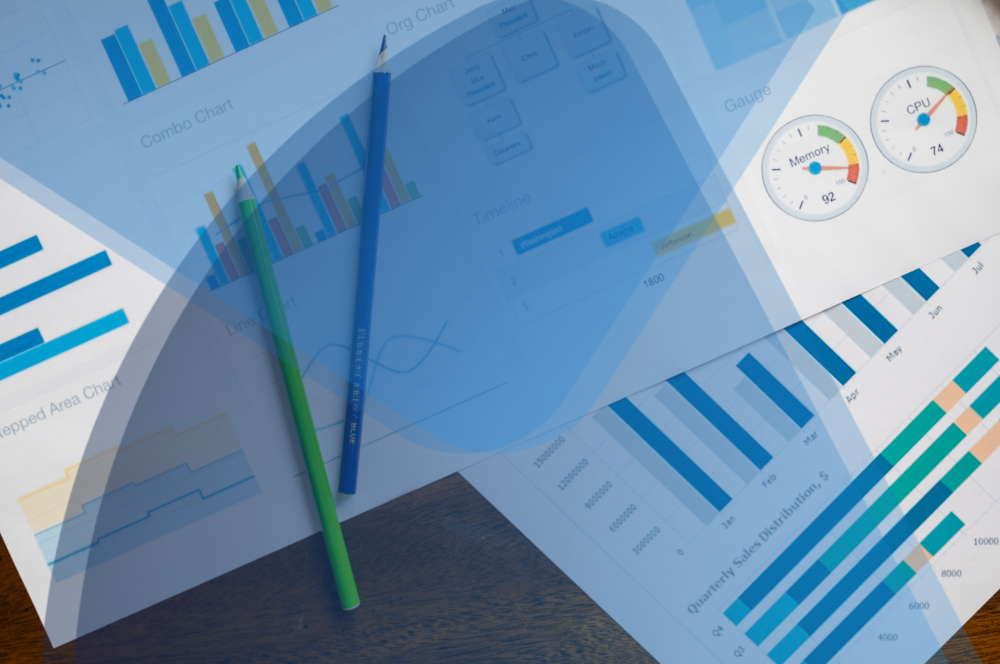Why You Shouldn’t Track Time in Your ERP System
Table of Contents
ERP solutions can be incredibly powerful tools for businesses looking to streamline operations and enhance growth. Boasting a robust feature set, there is very little that the modern ERP can’t do.
But just like a rocket ship isn’t the best mode of transportation for a trip to the grocery store, ERPs aren’t always the best systems to complete every task.
When it comes to tracking time, relying solely on an ERP system may not provide the usability and accessibility your business needs. Instead, organizations may benefit from a dedicated time-tracking solution specifically designed to meet the unique demands of project accounting.
In this article, we’ll delve into why using an ERP system for time tracking may not be the best choice and why a specialized solution may be a better fit.
The Problem with Tracking Time in Enterprise Resource Planning Solutions

While ERP systems are great for many financial operations, they aren’t always the best option for tracking time. Here are some reasons why you shouldn’t rely on your ERP system for time tracking.
The System Wasn’t Built for Easy Time Entry
ERP systems aren’t built with time tracking in mind; they were made for financial accounting. Time tracking is an add-on, and while it may cover the base case, ERP systems won’t offer flexibility or usability. Time-tracking workflows and interfaces that drive simplicity for end users, value for managers, and completion across the organization are highly specialized. ERP systems can offer breadth but can’t deliver the user experience that a specialty tool can.
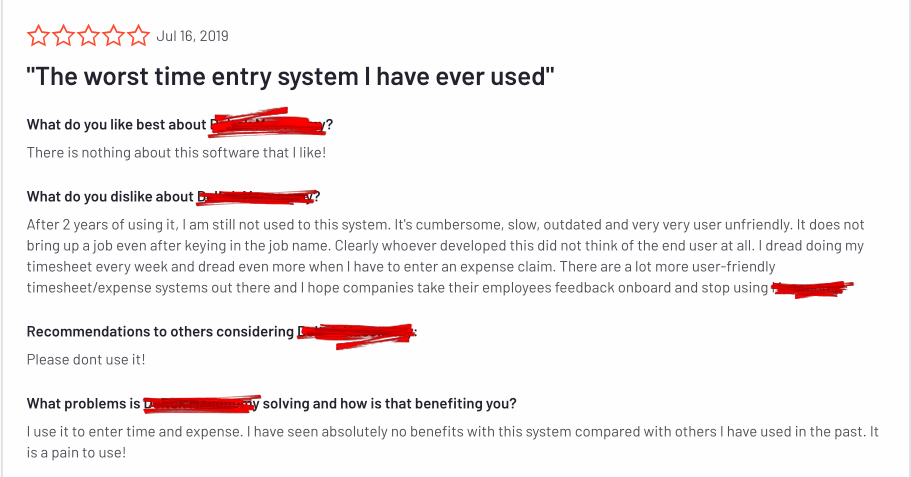
Access to Information is Limited. On Purpose.
With ERP systems, generating reports goes far beyond clicking a button. Notorious for their complexity, ERP systems require dedicated experts to extract data and create reports. This not only ties up valuable analyst resources, but also slows down the process of getting the insights that your managers need. The time-consuming nature of report generation can lead to frustration, missed opportunities, and delays in decision-making. When this information is siloed, the executors who need that data most may miss critical opportunities to impact revenue.
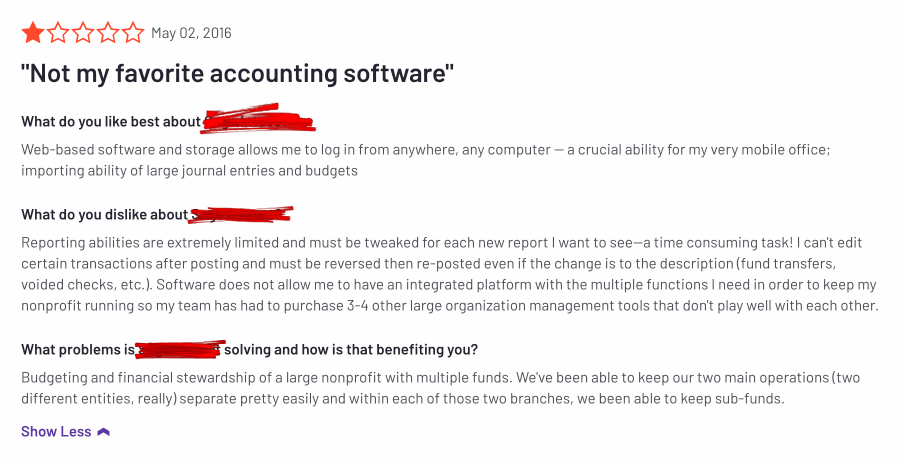
Your Workflows May No Longer Work
ERP systems are built with a specific architecture, and your current time-tracking processes may not work with that architecture. While you may be able to tailor the ERP system to your preferences, altering ERP systems is a lengthy, cost-prohibitive process. Rather than customize the system, you’ll likely choose to overhaul your processes, which will be time-consuming and disruptive to your business.
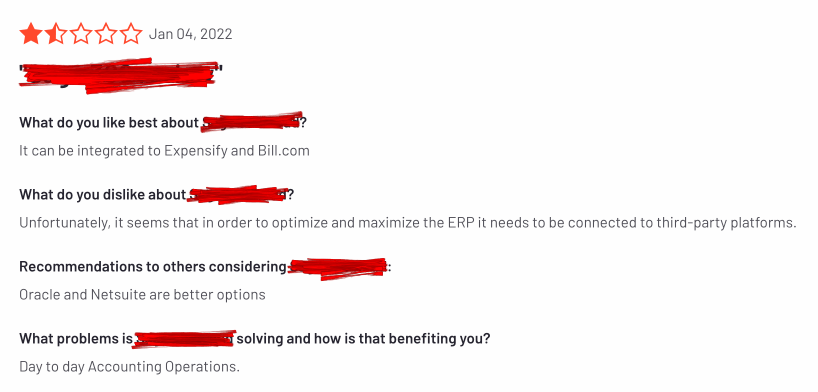
ERPs Are Notoriously Difficult to Set Up
ERP systems have earned a reputation for being complex and challenging to set up and maintain. The implementation process requires a specialized skill set and can often be lengthy, involving multiple stages and a great deal of technical knowledge. For growing businesses, this can result in significant delays, added costs, and a drain on resources.
The setup process alone can be a significant deterrent for organizations looking to track time in an ERP system. It’s also important to consider the investment in time and resources required to keep the system running.
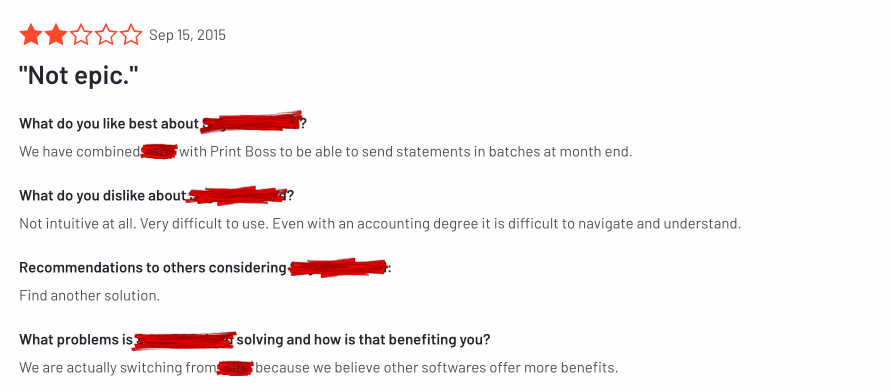
System Maintenance and Upgrades are Expensive
Time tracking requires constant upkeep as different employees, projects, and billing rates enter the system.
And while maintaining and upgrading an ERP system is crucial to its functionality and longevity, these tasks come at a cost. The expenses associated with system maintenance and upgrades can add up quickly and be a significant financial burden, particularly for growing businesses. Not only does this take valuable time and resources away from the day-to-day operations, but it also requires a dedicated budget for the continued upkeep of the system. This can be a deterrent for many organizations and is something to consider when evaluating the cost-effectiveness of using an ERP system for time tracking.
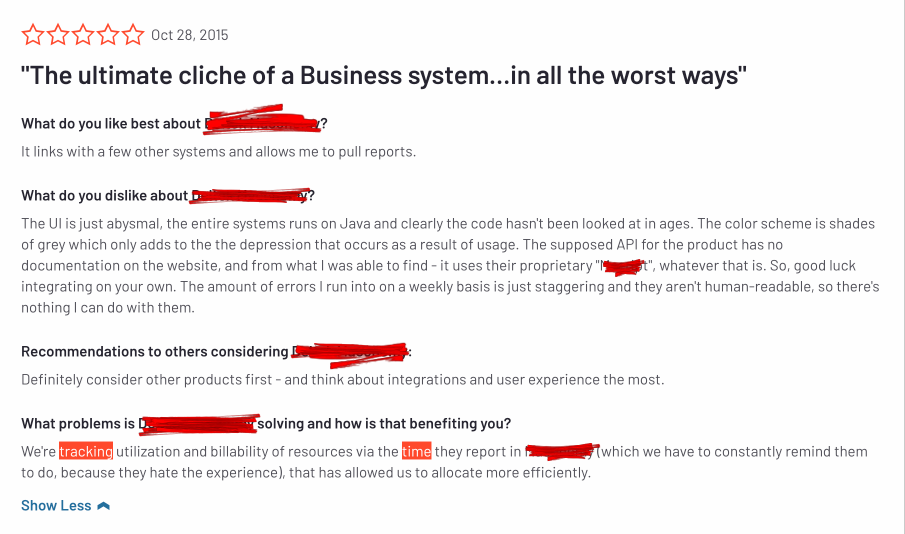
Why You Need a Dedicated Time-Tracking System

While ERP systems may not be the best time-tracking option, dedicated timesheet systems are built with usability, workflow customization, and accessible reporting in mind. Here are some of the reasons why you need a dedicated time-tracking system.
Effortless Time Entry Leads to Accurate Data
Dedicated time-tracking systems prioritize user experience and ease of use, making it simpler for employees to accurately and consistently log their time.
The user-friendly interface eliminates the need for extensive training or technical knowledge, which can result in frustration and errors in an ERP system. By ensuring that employees can log their time without difficulty, dedicated time-tracking software guarantees the quality of the data collected. This translates to more accurate reporting and a better understanding of workforce utilization, ultimately leading to informed decision-making and improved business performance.

Your Entire Staff Can Run Reports Themselves
With a dedicated time-tracking system, your managers can make real-time decisions – not delay them for two weeks. This is because your entire staff can run reports themselves, eliminating the need to rely on a single individual or department to access the data. This not only saves time and resources but also prevents bottlenecks from delaying decisions. After all, there’s nothing worse than waiting two weeks for data needed in real-time.
By enabling various managers and team members to generate real-time reports, organizations can make informed decisions, respond quickly to changes in utilization, and allocate resources better. The ability for all staff members to access time-tracking data promotes accountability and collaboration, leading to more efficient and effective operations.

Time-Tracking Software Adapts to Your Ideal Processes
Dedicated time-tracking systems offer the flexibility to customize and streamline entry, approval, and reporting processes. This allows organizations to configure the software to align with their unique workflow and processes, instead of being forced to conform to a one-size-fits-all solution. By adapting to your ideal processes, time-tracking software can effectively support and enhance your operations, improving efficiency and reducing the risk of errors.
Integrating Your Time Data with Other Platforms is Easier
Dedicated time-tracking systems are designed to integrate seamlessly with your existing tech stack. Their robust APIs ensure that your time-tracking data is easily transferred and synced with your other platforms, such as ERP solutions, project management tools, and payroll systems. This helps create a unified and comprehensive view of your business operations.
In addition, their professional services teams have the expertise to create bespoke integrations with any 3rd party software, even if they are outside your current tech stack. This level of integration and customization ensures that your time-tracking platform works flawlessly with your existing systems, streamlining processes and maximizing efficiency.
A dedicated time-tracking system allows you to easily manage and utilize your time data to drive better business outcomes.

You’ll Receive Upgrades More Frequently
Dedicated time-tracking systems are usually created by nimble, focused companies. This allows them to roll out updates and upgrades more frequently than ERP systems. Their constant product enhancements keep you on the cutting edge of time-tracking technology and guarantee that your system always functions at its best. Unlike with ERP systems, time tracking is the main focus for these companies, so they’re more likely to invest in new features and advancements.

Make Time Tracking Easy for Your Team

In conclusion, if you want to make time tracking easy for your team, you need a dedicated time tracking system. These systems are user-friendly, adapt to your ideal processes, and provide your entire team with real-time insights and data you need to make informed decisions. Don’t rely on your ERP system for time tracking – instead, invest in a dedicated time tracking system and make time tracking a breeze for your employees.



